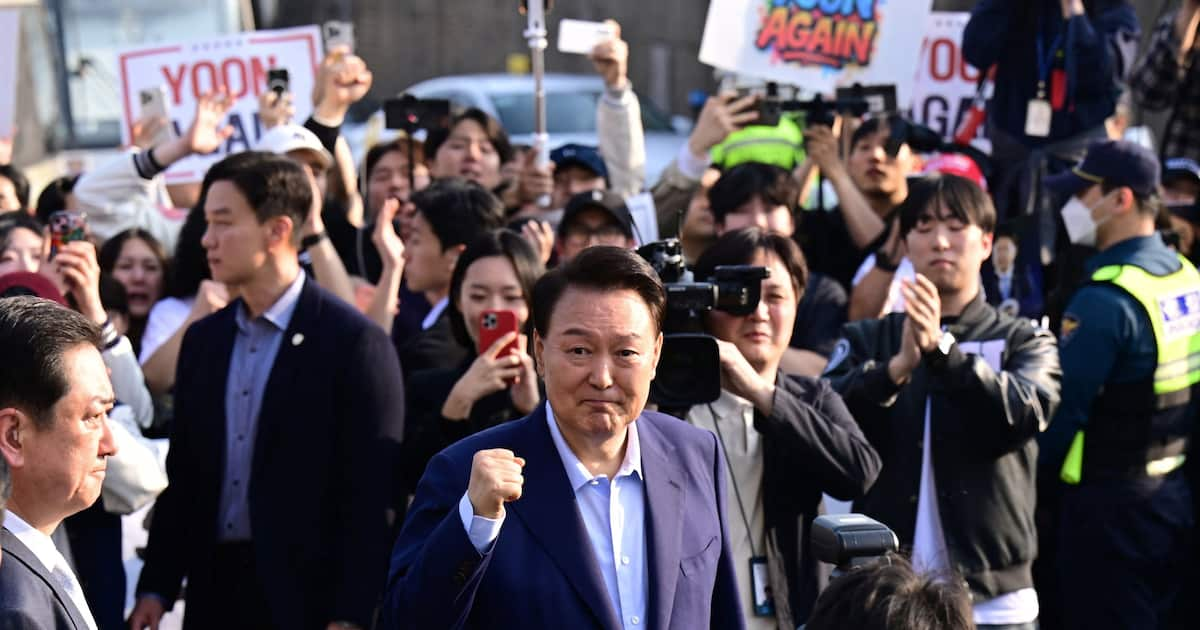No Future Clinging to Yoon: Korean Conservatism's Crisis
South Korea's conservative party faces an existential crisis as its reliance on President Yoon Suk Yeol proves increasingly untenable. Recent polls show plummeting approval ratings for both Yoon and the ruling People Power Party (PPP), raising serious questions about the future of Korean conservatism. This isn't just a dip in popularity; it signals a deeper, more fundamental problem within the party's ideology and strategy.
Yoon's Presidency: A Source of Division, Not Unity
President Yoon Suk Yeol's presidency has been marked by controversy and internal strife within the PPP. His confrontational style and perceived lack of communication have alienated significant portions of the electorate, including some within his own party. This internal fracturing is hindering the PPP's ability to effectively address crucial national issues and present a cohesive vision for the future.
Key Factors Contributing to the Crisis:
- Controversial Policies: Several of Yoon's policies, including those related to historical narratives and economic reforms, have faced strong opposition, leading to widespread public discontent.
- Communication Breakdown: A perceived lack of clear and consistent communication from the President has created confusion and mistrust among the populace.
- Internal Factionalism: The PPP is struggling with internal power struggles and ideological disagreements, preventing a unified front against the opposition.
- Declining Public Trust: Repeated scandals and perceived failures to address pressing national issues have eroded public trust in both Yoon and the party.
Beyond Yoon: A Deeper Look at Korean Conservatism's Identity Crisis
The crisis extends beyond President Yoon's personal approval ratings. It reflects a broader struggle within Korean conservatism to define its identity and appeal in a rapidly changing political landscape. The party's traditional reliance on older demographics and a focus on nationalist narratives is no longer sufficient in a society grappling with economic inequality, generational divides, and evolving social norms.
The Need for Rebranding and Reform:
- Addressing Generational Gaps: The PPP needs to appeal to younger voters by addressing their concerns about job security, housing affordability, and climate change. A rigid adherence to outdated policies will only alienate this crucial demographic.
- Embracing Inclusivity: The party needs to demonstrate a commitment to inclusivity and address concerns about social justice issues, fostering broader appeal beyond its traditional base.
- Modernizing Messaging: The PPP's communication strategy needs a complete overhaul. Clear, transparent, and empathetic communication is crucial to regaining public trust.
- Internal Reconciliation: The party must resolve its internal conflicts and present a unified front to regain credibility and electoral viability.
The Path Forward: Can Korean Conservatism Revive?
The future of Korean conservatism hinges on its ability to adapt and evolve. Simply clinging to the past and hoping for a reversal of current trends is a recipe for continued decline. The PPP must engage in serious introspection, undertake significant reforms, and develop a compelling vision for the future that resonates with a broader spectrum of South Korean society. Failure to do so could result in the continued marginalization of the conservative movement in South Korean politics.
Further Reading:
This article provides valuable insights into the current state of Korean conservatism and its challenges. By addressing these issues head-on, the PPP can potentially chart a course towards a more sustainable future. However, significant changes are needed to regain the trust and support of the South Korean people.
